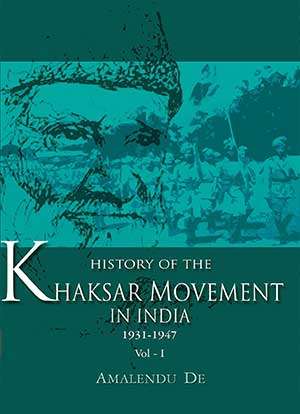Khaksar Movement in India – Vol I
Khaksar Movement in India – Vol I is backordered and will ship as soon as it is back in stock.
Couldn't load pickup availability
Genuine Products Guarantee
Genuine Products Guarantee
We guarantee 100% genuine products, and if proven otherwise, we will compensate you with 10 times the product's cost.
Delivery and Shipping
Delivery and Shipping
Products are generally ready for dispatch within 1 day and typically reach you in 3 to 5 days.
Book Details
-
Title: History of the Khaksar Movement in India (1931–1947), Volume I
-
Author: Amalendu De
-
Language: English
-
ISBN: 9788188955824
-
Cover Type: Paperback
About The Book
"History of the Khaksar Movement in India (1931–1947) Vol – I" by Amalendu De is a pioneering scholarly work that sheds light on one of the lesser-known but impactful movements in India’s struggle for independence. The Khaksar Movement, founded by Inayatullah Khan Mashriqi, emerged as a significant socio-political force during the British colonial period, particularly between 1931 and 1947.
This meticulously researched volume delves into the ideology, organizational structure, leadership, and strategic objectives of the Khaksars, revealing how the movement aimed to awaken a sense of discipline, unity, and self-sacrifice among Indian Muslims. The book explores the movement’s engagements in Punjab, its role in Lahore, and its broader interactions with the British Empire and other contemporary nationalist efforts.
Drawing from archival sources and critical analysis, Amalendu De presents a balanced and thorough narrative that situates the Khaksar Movement within the larger tapestry of India's freedom struggle and social reform movements. It also investigates the unique approach of the movement, which blended elements of nonviolence, militancy, and Islamic revivalism, making it distinct yet deeply intertwined with the anti-colonial ethos of the time.
This book is an invaluable resource for students of South Asian history, political science, Islamic studies, and postcolonial theory, as well as for general readers interested in the freedom movements of India that go beyond the mainstream narratives.





